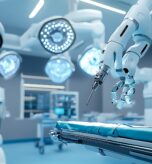
Surgical procedures have evolved significantly over the years, thanks to advancements in medical technology. From minimally invasive techniques to robotic-assisted surgeries, modern surgical procedures offer improved precision, faster recovery, and better patient outcomes. Understanding how these innovations impact patient care can help individuals make informed decisions about their health.
Minimally Invasive Surgery (MIS)
One of the most significant advancements in modern surgery is minimally invasive surgery (MIS). Unlike traditional open surgeries, MIS requires smaller incisions, resulting in reduced pain, shorter hospital stays, and quicker recovery times. Some of the most common minimally invasive techniques include:
- Laparoscopic Surgery: Uses small incisions and a camera to perform operations with enhanced precision.
- Endoscopic Procedures: Utilizes flexible tubes with cameras and surgical tools to treat conditions in the digestive tract, lungs, and other organs.
- Laser Surgery: Employs focused light beams to remove or reshape tissue with minimal damage to surrounding areas.
Robotic-Assisted Surgery
Robotic-assisted surgery has revolutionized complex procedures by providing surgeons with enhanced control and accuracy. These systems, such as the Da Vinci Surgical System, allow for:
- Greater precision in delicate surgeries.
- Reduced risk of complications and infections.
- Faster healing times due to smaller incisions.
- Enhanced visualization of the surgical site using 3D imaging.
3D Printing in Surgery
The integration of 3D printing in the medical field has led to remarkable improvements in patient care. Surgeons can now create custom prosthetics, implants, and even anatomical models for pre-surgical planning. The benefits of 3D printing in surgery include:
- Personalized treatment plans tailored to individual patients.
- Improved success rates in reconstructive surgeries.
- Faster and more efficient surgical procedures.
Artificial Intelligence (AI) in Surgery
Artificial intelligence (AI) is playing an increasingly important role in modern surgical practices. AI-powered tools can assist in diagnosing diseases, predicting surgical outcomes, and guiding surgeons during procedures. Some key applications include:
- AI-assisted imaging: Enhances the accuracy of MRIs, CT scans, and X-rays.
- Predictive analytics: Helps identify potential complications before they occur.
- Surgical robots with AI integration: Improves decision-making and execution of complex procedures.
Augmented Reality (AR) and Virtual Reality (VR)
Augmented reality (AR) and virtual reality (VR) are transforming how surgeons prepare for operations. These technologies provide:
- Virtual surgical training: Allows medical professionals to practice procedures in a risk-free environment.
- Enhanced visualization: AR overlays digital information onto real-world surgical sites for improved precision.
- Patient education: Helps individuals understand their conditions and treatment options more effectively.
Smart Surgical Instruments
Smart surgical instruments, equipped with sensors and real-time data analysis, improve the efficiency and safety of operations. Some innovative tools include:
- Electrosurgical devices: Reduce blood loss and minimize damage to surrounding tissues.
- Smart scalpels: Provide feedback on tissue characteristics to aid precision.
- Surgical navigation systems: Enhance accuracy in procedures such as orthopedic and neurosurgeries.
Telemedicine and Remote Surgery
The rise of telemedicine has extended into the surgical field, allowing for remote consultations and even remote-controlled surgeries. Benefits of telemedicine in surgery include:
- Access to expert surgeons worldwide.
- Reduced need for patient travel.
- Improved post-surgical follow-ups through virtual consultations.
Conclusion
Advanced technology in modern surgery has drastically improved patient care, making procedures safer, more efficient, and less invasive. Innovations such as robotic-assisted surgery, AI integration, 3D printing, and AR/VR are shaping the future of medical science. As these technologies continue to evolve, patients can expect even better surgical outcomes, reduced recovery times, and enhanced overall experiences.
For expert surgical care using state-of-the-art technology, visit Smart Clinics in Mohali. Learn more about our services and book an appointment at Smart Clinics.





